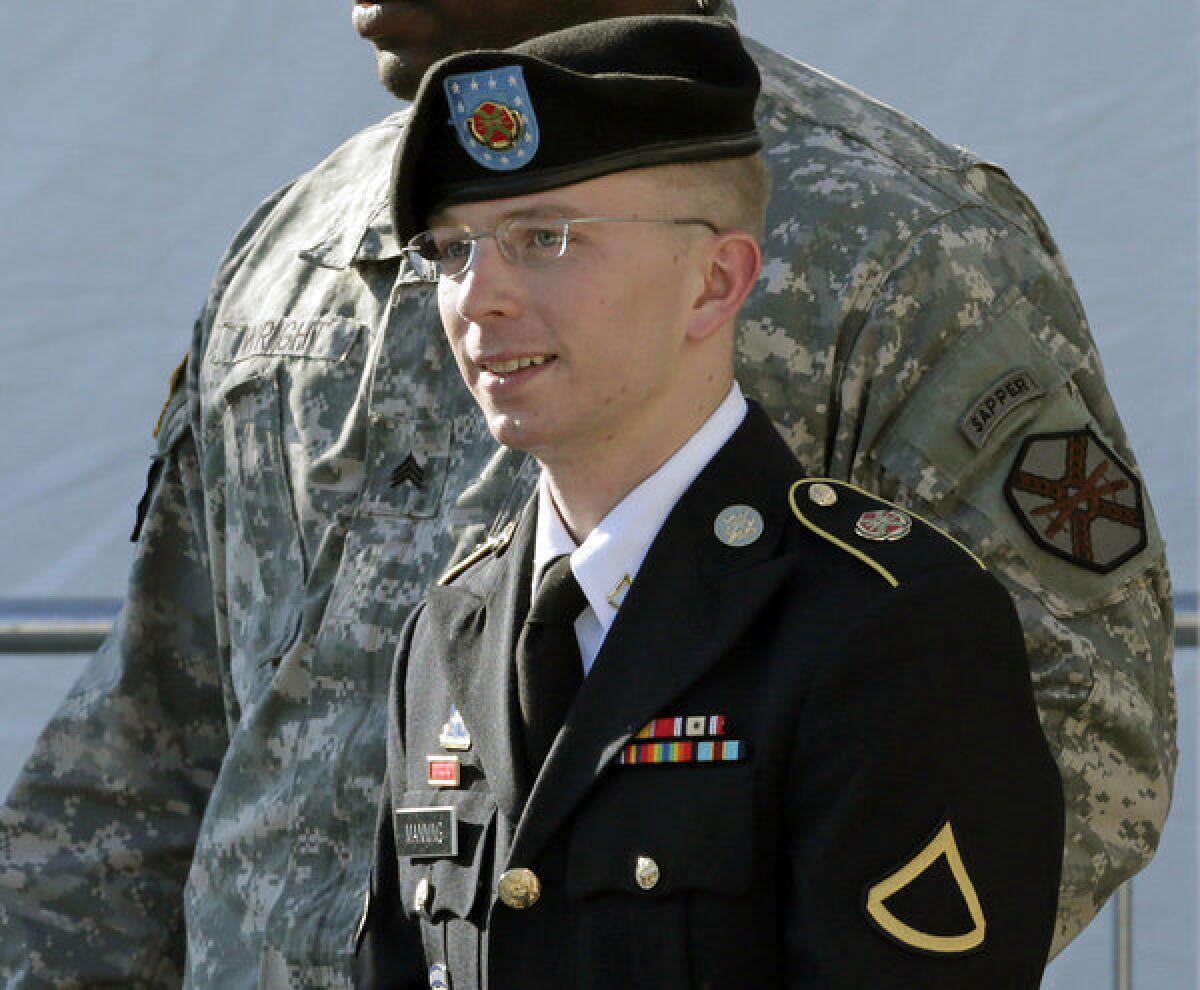WikiLeaks case: What’s fair?

- Share via
After ruling last week that Army Pfc. Bradley Manning was subjected to overly restrictive confinement at a Marine Corps brig, a military judge postponed proceedings in Manning’s court-martial until June. The Army should use that delay to consider a plea arrangement in which the accused leaker of vast amounts of classified information would receive significant prison time but not the life sentence associated with the most serious charge against him.
Manning, a 25-year-old former intelligence analyst in Iraq, has been accused of providing WikiLeaks with more than 250,000 U.S. diplomatic cables and thousands of military field reports from Iraq and Afghanistan. To his supporters, Manning is a whistle-blower to be honored — perhaps with a Nobel Peace Prize — for disseminating material such as a video of a 2007 Apache helicopter attack that killed 12 civilians in Baghdad. To the Army and the Obama administration, he is an insubordinate soldier whose reckless disgorging of classified information undermined national security and the conduct of diplomacy. Some argue that Manning is neither hero nor villain, just an immature young man with poor judgment and a propensity for self-dramatization.
Whatever one thinks of Manning, he was entitled to humane treatment once he was arrested. In fact, his imprisonment in a Marine Corps brig in Quantico, Va., in 2010 and 2011 was cruel and degrading. Officials acknowledged in court that Manning was kept in a windowless cell for 23 hours a day and sometimes stripped of his clothes, supposedly to prevent him from hurting himself or others. The judge, Col. Denise Lind, concluded that his confinement had been “more rigorous than necessary” and as compensation she shaved 112 days from any prison sentence he would receive if convicted.
She refused, however, to dismiss charges against Manning that include one allegation — “aiding the enemy” — that could result in a life sentence. That charge strikes us as excessive in the absence of evidence that Manning consciously colluded with hostile nations or terrorists. A prosecutor indicated that the Army would proceed with flimsier evidence, including information that Osama bin Laden asked an Al Qaeda associate for some of the material that Manning allegedly gave to WikiLeaks. By that theory, the New York Times, which ran some WikiLeaks material, could be accused of espionage if Bin Laden picked up a copy of the paper.
Manning’s lawyers have said that he would be willing to plead guilty to lesser charges that would result in a maximum sentence of 20 years in prison. That would mean Manning would be confined until middle age for crimes committed when he was a few years past adolescence. Even for an administration obsessed with leaks, that should be punishment enough.
More to Read
A cure for the common opinion
Get thought-provoking perspectives with our weekly newsletter.
You may occasionally receive promotional content from the Los Angeles Times.






